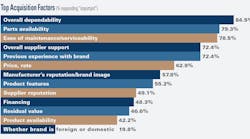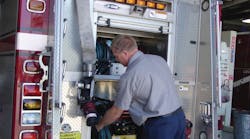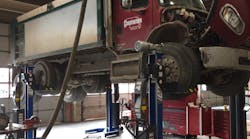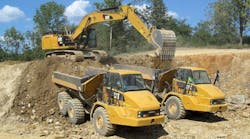Earlier this summer, the Nelson A. Rockefeller Institute of Government indicated just how prescient fleet managers were when they surveyed 41 states and found that collections of state personal-income taxes between January and April fell 14 percent compared to 2001. States have had to decide how to spread fewer dollars among education, elder-care, and broad-based assistance programs. State budget gaps are projected to reach $57.9 billion, according to the National Conference of State Legislatures.
For state government fleets, the response has been dire. Most states must balance their budgets, and state Departments of Transportation have delayed new equipment purchases and cut operations costs.
Construction Equipment's survey of the country's largest fleets includes government fleets as well as contractor, materials producer, mining and other noncontractor fleets. With a large percentage of state DOTs included, the numbers on government fleets provide a general idea of how state fleets are doing halfway through 2002.
New equipment purchases have been delayed. About 45 percent of government Giants say they increased their new equipment purchases in 2001; 28 percent will increase spending this year. Rental has grown. In 2001, 11 percent increased expenditures on rental; 18 percent will this year. The amount spent on equipment repair budgets has declined. Almost 40 percent increased spending in 2001; 27 percent will this year.
State residents and elected officials will find it increasingly difficult to balance issues such as education and Medicare with the need for equipment to build and maintain public infrastructure; but they must. Wholesale tax increases will not work; nor will a shifting of responsibility to the Federal government. Tax dollars are still tax dollars.
Citizens need to ask what they expect from their state. What programs are truly the responsibility of state government; what programs could be better run outside? No one can argue that government isn't best suited to maintain public infrastructure, but the case must be made in the context of governmental responsibility. Let's work harder at aligning the funding argument with the core reasons for government, not as just another line in the budget to be extended to the next fiscal year.




